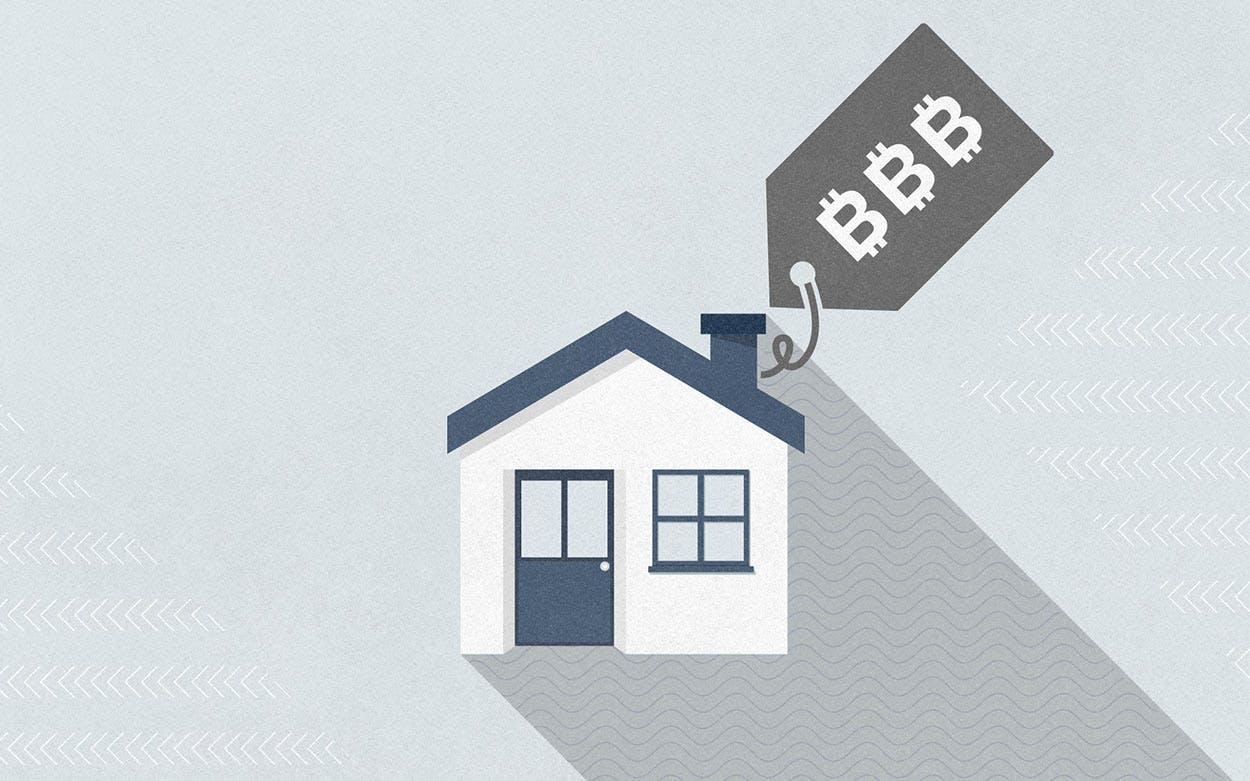There are a lot of reasons people are excited about cryptocurrency right now. There are the get-rich-quick speculators who bought into Bitcoin last fall and made five times their investment, and there are the long-term holders who believe in the blockchain’s ability to create a more transparent, trustworthy, and just economy. (There are also, of course, people who bought in to various cryptocurrencies at their peak in early January, before the market crashed, who are currently hoping that their kids’ college funds bounce back before they turn eighteen and wishing they’d never heard of any of this.) But for all of the potential of cryptocurrency, there is also a big question: What is any of it actually worth?
One company that is attempting to provide a hard-and-fast answer to that question is the California-based Property Coin. Their cryptocurrency, which launches later this month, is the rare coin with a hard asset backing it: real estate. To help explain how that might work, they’ve got a house in Northwest Dallas that they’re listing as for sale—to buyers paying with Property Coin, Bitcoin, or Ethereum (as well as old-fashioned Yankee dollars).
The property, at 3220 Northaven Court, has been on the market before. It was initially listed in 2015 at $254,900, and has been listed and unlisted a few times in the past three years, according to records from Zillow, with its most recent appearance in December. But when it hits the market again in April, the price might be closer to 33.7 Bitcoin.
That’ll come after the company, which did business in real estate as Aperture for years before launching Property Coin, spends the next six weeks or so making improvements to the house. “What we really like about this house is it’s a four-bedroom, four-bath house that’s brick, on a cul-de-sac, with a nice yard, and it happens to have been vandalized,” explains Aperture founder and co-CEO Matt Miles. After cleaning up the property, removing the graffiti, and replacing the boarded-up windows, Miles expects that the property will move quickly.
That’s a good thing for the launch of Property Coin. “Our expectation is that a house that’s for sale with a coin brings more attention to the coin project,” Miles says, though he doesn’t think that the unusual currency request will necessarily help the house move more quickly. “I don’t think that the outcome of the sale price of this house will be impacted.”
Buying a house with Bitcoin or Ethereum puts both buyer and seller in a unique position. The values fluctuate wildly—within the past 24 hours, Bitcoin’s price has gone from as high as $10,886 to as low as $9,740, meaning that selling a house in Bitcoin could mean losing ten percent of what you were paid while driving from the closing to lunch. That’s a risk that Miles knows he’s taking, and he expects that Property Coin can mitigate it for investors. A cryptocurrency backed by a real-world asset like real estate is less susceptible to bubbles or to the sort of wild hourly fluctuations that mark the current crypto market.
“The nature of what we’re doing is as an investment security,” which differentiates Property Coin from most cryptocurrencies on the market, says Miles. That means additional regulation (the company is only selling the currency to accredited investors in the U.S.), and a lot less risk. “If you’re not backed by assets, how do you properly evaluate what you should be worth? $1, $2, $10, or $100—how can you possibly know?” Miles asks. “We can tell people that, as an example, at the end of March, we might own $50 worth of houses and loans per coin.” Miles says that Property Coin will release these reports every month, so people considering investing in the cryptocurrency will have a better sense of its value, especially relative to the value of other coins: If each Property Coin is worth $50 of assets, as in Miles’s example, then that’s likely to set a floor for the sale price of the coin on the market. In that sense, Property Coin resembles more traditional investing than the speculation that’s driven the price of most cryptocurrency in recent months (although it may mean that investors are speculating on the growth of real estate, instead). Either way, treating Property Coin as a different kind of financial instrument from most cryptocurrency is part of the company’s point. “The intent is that, by acquiring assets that we think are good trades that we want to make, we expect that we will earn profits, and the value of the assets owned by the coinholders will grow over time,” says Miles.








